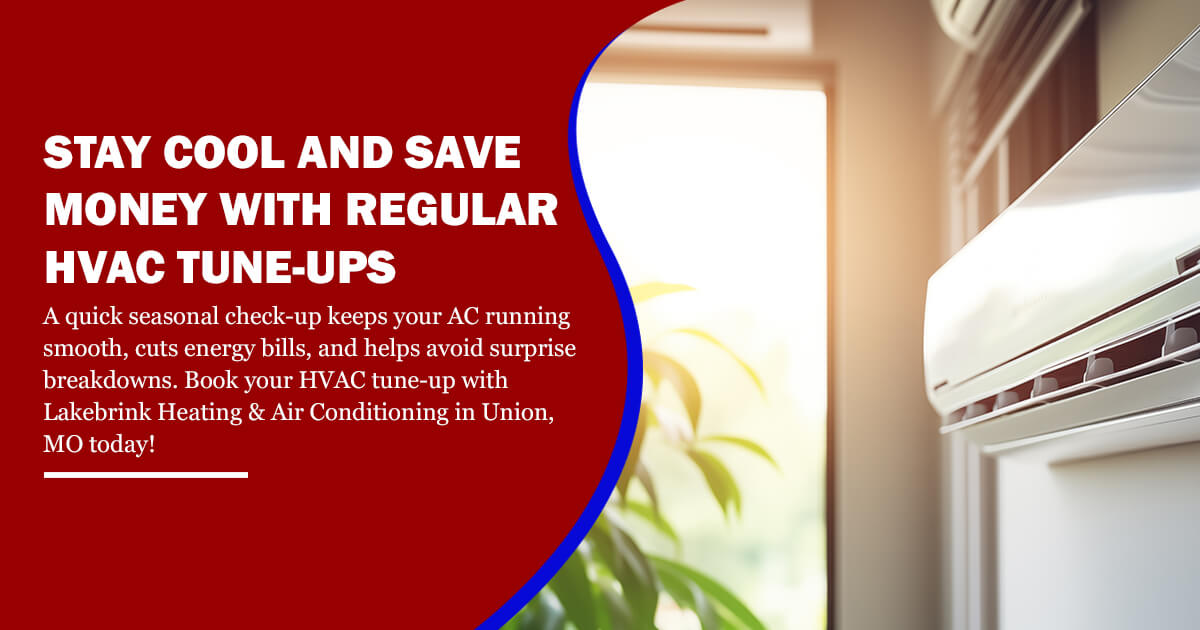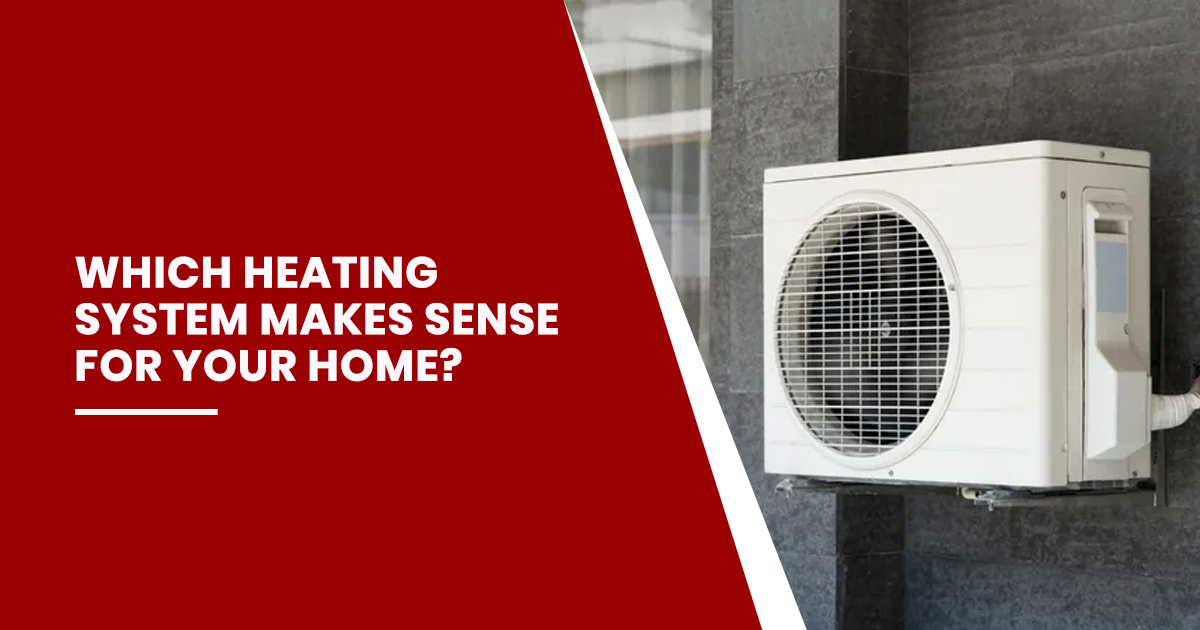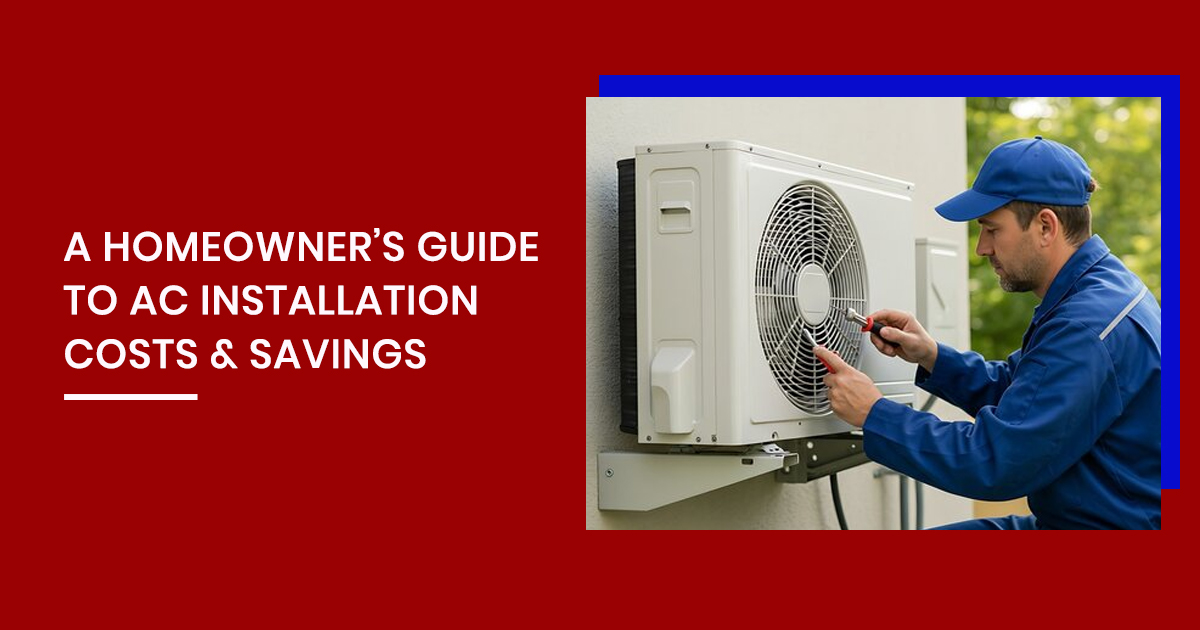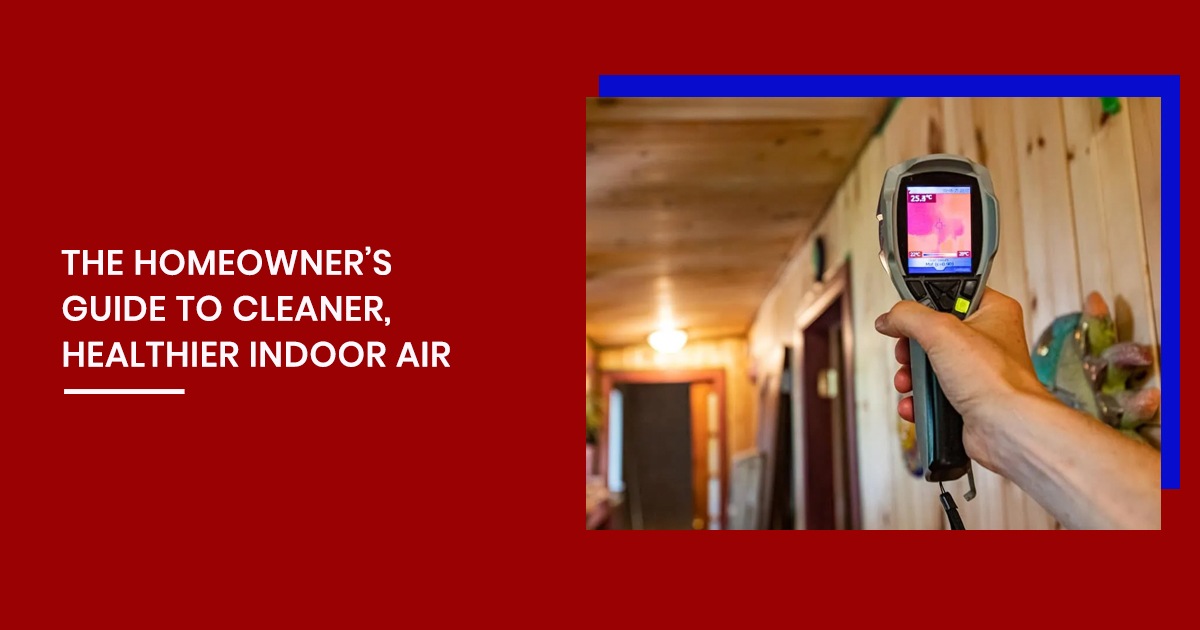Why Is My Air Conditioning Unit Leaking Water? Understanding and Resolving a Common AC Problem
Discover why your air conditioning unit may be leaking water, the common causes behind this frustrating issue, and effective solutions to prevent damage and maintain home comfort. Learn expert tips from Lakebrink Heating & Air
Conditioning, Union, MO’s trusted HVAC partner.
The Hidden Costs and Risks of a Leaking AC Unit
The Prevalence of AC Water Leaks Among Homeowners
Water leakage from air conditioning units is a common concern among homeowners, particularly in regions like Union, MO, where AC systems undergo heavy use during hot, humid summers. This issue not only disrupts the comfort of your
home but can also lead to costly repairs and damage if left unaddressed.
Impact on Home Comfort and Potential Property Damage
When an air conditioning unit leaks water, it can cause increased indoor humidity, leading to discomfort and even potential health issues due to mold and mildew growth. Furthermore, continuous leaks can damage walls, ceilings,
flooring, and even electrical systems, leading to expensive restoration needs.
Why Addressing Water Leakage Matters for Your HVAC System’s Longevity
A leaking AC unit often signals underlying problems that, if ignored, can escalate into full system failure. Addressing water leakage promptly helps maintain HVAC efficiency, extends equipment lifespan, and protects your investment
from premature replacement costs.
What Causes Air Conditioning Units to Leak Water? Exploring the Problem in Depth
Overview of How an AC System Handles Condensation
An air conditioner removes heat and moisture from the air as it cools your home. During this process, condensate forms on the coil and typically drains away through a dedicated line. When this drainage is disrupted, or components
fail, water can leak into your home.
Common Causes of Water Leakage in AC Units
- Clogged or Dirty Condensate Drain Line: Over time, algae, dirt, and debris can block the drain line, causing water to back up and overflow inside the unit or onto floors.
- Broken or Detached Drain Pan: The drain pan collects condensate; if damaged or misaligned, water may leak instead of draining properly.
- Frozen Evaporator Coil Melting Excess Water: Ice that forms on coils due to airflow issues or low refrigerant can melt and create excessive water that the drainage system cannot handle.
- Improper Installation or Sizing Issues: Incorrect installation or an AC unit that is too large or small leads to moisture problems and increased condensation.
- Low Refrigerant Levels Causing Freezing: Reduced refrigerant can cause coils to freeze, accelerating water leakage when melting occurs.
- Damaged or Misaligned Drain Pipes: Cracks or disconnections in the drains can allow water to escape into unwanted areas.
How These Issues Disrupt Your Home’s Comfort and Lead to Energy Inefficiency
When your AC leaks water, it can compromise air quality and reduce system efficiency. Moisture buildup affects cooling capacity, causing your system to work harder and increasing energy consumption and utility bills.
Risks of Ignoring Water Leaks: Mold, Structural Damage, and Health Concerns
Neglecting water leaks can lead to mold growth, which poses serious health risks including allergies and respiratory issues. Moreover, prolonged moisture exposure damages your home’s structures, potentially leading to costly
repairs.
Practical Solutions and Prevention Strategies to Stop AC Water Leakage
DIY Inspection and Simple Fixes Every Homeowner Can Perform
- Clearing Condensate Drain Line with Vinegar or Compressed Air: Flushing the drain line monthly can prevent clogs and blockages.
- Checking and Securing the Drain Pan: Inspect for cracks or displacement regularly and ensure it is properly aligned to catch condensate.
- Resetting Your AC Unit and Replacing Filters: Power cycling and replacing dirty filters can improve airflow, reducing ice buildup and leaks.
Professional Diagnosis and Repair Services by Lakebrink Heating & Air Conditioning
- Expert Cleaning and Maintenance of Drainage Systems: Certified technicians clean and remove debris reliably to prevent or clear blockages that cause leaks.
- Timely Refrigerant Level Checks and Coil Repairs: Addressing refrigerant issues and fixing coils stop freezing and water overflows efficiently.
- Custom Sheet-Metal Ductwork Fabrication to Optimize Airflow and Prevent Condensation Issues: Properly fabricated and sealed ducts enhance system performance and control moisture better.
- Installation of Energy-Efficient and Properly Sized AC Systems to Minimize Future Leaks: Lakebrink’s load-calculated installations ensure optimal sizing, preventing common leakage problems.
Routine Maintenance Tips to Prevent Water Leaks and Enhance AC Efficiency
Regular maintenance such as bi-annual tune-ups, cleaning coils and filters, and checking drainage lines helps keep your AC running efficiently and leak-free. Setting reminders for annual check-ups can prevent small problems from
becoming major issues.
How Lakebrink’s Professional Maintenance Plans Can Save You Money and Stress
By enrolling in a maintenance plan with Lakebrink Heating & Air Conditioning, homeowners in Union, MO can enjoy priority scheduling, lower repair costs, and extended equipment lifespan. These plans are designed to catch
potential issues early, including water leaks, to avoid emergency visits and costly damage.
What to Do Next — Getting Your AC Leak Fixed and Prevented
When to Call a Licensed HVAC Professional
If you notice persistent water under or around your AC, discoloration or mold near vents, or reduced cooling effectiveness, it’s time to contact a professional. Avoid DIY fixes for complex issues such as refrigerant leaks or
electrical components to prevent further damage.
What to Expect from Lakebrink HVAC’s Service Process
- Comprehensive Inspection and Transparent Diagnosis: Technicians perform thorough checks and explain issues and options clearly before proceeding.
- Flat-Rate Pricing with No Surprise Charges: You receive an upfront, easy-to-understand estimate for repairs or service.
- Prompt Repairs, Emergency Service Availability: Certified professionals respond quickly—even during after-hours—to restore your comfort.
- Long-Term Warranty and Comfort Promise: Lakebrink stands behind their work with warranties and follow-ups to ensure customer satisfaction.
Scheduling Regular Preventative Maintenance with Lakebrink HVAC in Union, MO
Booking recurring maintenance appointments through Lakebrink helps maintain system performance and prevents water leakage. This proactive approach also supports energy savings and avoids unexpected breakdowns during busy summer
months.
Reach Out to Lakebrink Heating & Air Conditioning for Trusted Local Expertise
Residents of Union, MO, and nearby communities can rely on Lakebrink’s experienced technicians to resolve water leakage and other HVAC issues efficiently. The company’s commitment to quality service and community focus makes them a
trusted partner for your home comfort needs.
Frequently Asked Questions
Why is my air conditioning unit leaking water?
Water leakage is often caused by a clogged condensate drain line, damaged drain pan, frozen evaporator coils, or low refrigerant levels. These conditions prevent proper water drainage and cause leaks.
Can I fix an AC water leak myself?
Simple fixes like cleaning the drain line or adjusting the drain pan can be done by homeowners. However, issues such as refrigerant leaks or coil repairs require professional assistance to ensure safe and effective repair.
How often should I have my AC serviced to prevent water leakage?
Regular maintenance at least twice a year, typically before summer and winter seasons, is recommended to keep your AC system in optimal condition and prevent water leaks.
What are the risks of ignoring an AC water leak?
Ignoring leaks can lead to mold growth, structural damage, reduced system efficiency, increased energy bills, and health problems due to poor indoor air quality.
How does Lakebrink Heating & Air Conditioning handle AC leak repairs?
Lakebrink offers expert inspection, cleaning, repair, and replacement services, including custom ductwork and energy-efficient system installation, backed by transparent pricing and customer-focused guarantees.
Water leakage from an air conditioning unit is a common but significant problem that can affect comfort, safety, and the integrity of your home. Identifying the cause—whether it’s clogged drains, damaged pans, or coil issues—and
addressing it promptly with professional help is essential.
Lakebrink Heating & Air Conditioning in Union, MO, provides comprehensive services to diagnose, repair, and maintain your HVAC system, ensuring it runs efficiently without leaks. Regular maintenance and expert care can prevent
costly damage and keep your home comfortable year-round.
If you’re experiencing water leakage or want to protect your AC system from future problems, contact Lakebrink today to schedule a service or consultation. Their experienced team is ready to provide trusted, reliable support
tailored to your needs.
Why Regular HVAC Maintenance is Crucial to Improve Efficiency and Extend System Lifespan
Homeowners depend on their heating, ventilation, and air conditioning (HVAC) systems to keep their homes comfortable year-round. However, without regular maintenance, even the best HVAC systems don’t perform efficiently, leading to
rising energy bills, unexpected breakdowns, and shorter equipment lifespan. Understanding the importance of routine HVAC upkeep is essential to protect your investment, improve energy efficiency, and maintain indoor air quality in
Union, MO.
Understanding the Hidden Costs of Neglecting HVAC Maintenance
How HVAC Inefficiency Affects Your Energy Bills
Many homeowners don’t realize how much an ill-maintained HVAC system impacts energy consumption. Research shows that neglecting basic upkeep can increase energy use by up to 30%, translating into significantly higher utility bills
during summer and winter months. This financial strain can compound over time, hitting household budgets hard and reducing the overall value of your home environment.
Common HVAC Failures Linked to Lack of Maintenance
Without routine care, key components like compressors, fans, and ductwork begin to degrade. Refrigerant leaks, worn belts, and clogged filters cause the system to work harder, often resulting in breakdowns during peak seasons. These
failures not only disrupt comfort but can pose health risks by reducing indoor air quality, allowing dust, mold, and allergens to circulate unchecked.
How Neglect Shortens Your HVAC System’s Lifespan
HVAC units typically last between 15 to 20 years with proper care. Skipping maintenance accelerates wear and tear, often cutting operational lifespan by nearly half. The cost of premature system replacement far exceeds the
relatively modest investment required for regular servicing, making maintenance an indispensable part of long-term home comfort management.
Diving Deeper: The Complexities and Consequences of Skipping Maintenance
The Inner Mechanics: Why HVAC Systems Need Precise Care
HVAC systems consist of multiple interconnected components—compressors, coils, ductwork, thermostats—that must work in harmony. Regular maintenance ensures these parts remain clean, well-lubricated, and properly calibrated. Missing
tune-ups allow minor issues to cascade, causing inefficiencies and leading to costly repairs or system failures.
How Efficiency Declines with Dirty Filters and Faulty Components
Dirty air filters restrict airflow, reducing system responsiveness and increasing energy use. Clogged coils hinder heat transfer, forcing compressors to run longer and consume more electricity. Imbalanced refrigerant levels cause
the system to cycle inefficiently, both increasing costs and damaging equipment. Typically, well-maintained systems run about 15% more efficiently than those neglected.
Indoor Air Quality Concerns From Poor Maintenance
Beyond energy costs, poor upkeep affects the air you and your family breathe. Dust accumulation, mold growth, and bacterial build-up in ducts and HVAC components can trigger allergies and respiratory problems. Maintaining your HVAC
system helps minimize these health risks by sustaining cleaner air flow and keeping humidity at safe levels.
Why Homeowners Often Overlook Scheduled HVAC Maintenance
Many skip maintenance due to misconceptions about cost, inconvenience, or lack of awareness. Some may delay service until a major breakdown occurs, which costs more than planned tune-ups. Understanding these challenges helps in
appreciating the preventative value of regular HVAC servicing—saving time, money, and discomfort in the long run.
How Routine HVAC Maintenance Resolves Problems and Enhances Value
What Does HVAC Maintenance Include?
- Replacing or cleaning air filters regularly to improve airflow and air quality.
- Inspecting and cleaning evaporator and condenser coils to maintain heat transfer efficiency.
- Checking refrigerant levels and detecting leaks to ensure optimal system function.
- Testing and calibrating thermostats and control systems for precise climate management.
- Inspecting ductwork for leaks and sealing gaps to reduce energy waste and improve airflow balance.
- Lubricating moving parts to reduce wear and prevent mechanical failures.
How Maintenance Lowers Energy Costs
Maintaining your HVAC system enables it to operate closer to designed efficiency levels. By ensuring clean filters, proper refrigerant charge, and intact ductwork, your unit uses less energy. The net effect can reduce your energy
bills by up to 15%, with immediate savings noticeable during heating and cooling seasons.
Extending Equipment Lifespan Through Regular Tune-Ups
Routine maintenance prevents small issues like dirt build-up or mechanical strain from turning into major failures. This proactive care can extend the life of your HVAC system by several years, ideally matching or exceeding
manufacturer expectations, and saving significant replacement costs over time.
Improving Indoor Air Quality and Comfort
Annual or semi-annual maintenance keeps your home’s air cleaner and your HVAC zoning balanced. This ensures consistent temperatures across rooms, eliminating hot or cold spots and reducing moisture problems that can lead to mold.
Affordable and Reliable HVAC Maintenance with Lakebrink Heating & Air Conditioning
For homeowners in Union, MO, Lakebrink Heating & Air Conditioning offers dependable, professional HVAC maintenance
backed by over 60 years of local expertise. With seasonal tune-up plans, emergency repair access, and transparent
pricing, they make system upkeep convenient and cost-effective—helping homeowners protect their investment without surprises.
Taking Charge: How to Manage Your HVAC Maintenance
Scheduling Maintenance with Lakebrink Heating & Air Conditioning
To keep your system running efficiently, contact Lakebrink for scheduled spring and fall tune-ups or emergency service. Their
technicians offer thorough diagnostics, immediate repairs when possible, and follow-up care to ensure your system’s reliability through all seasons.
Preparing for Your HVAC Maintenance Appointment
- Clear the area around your unit for technician access.
- Note any unusual noises, odors, or operational issues you’ve observed.
- Check and note your current thermostat settings.
- Keep track of your system’s last maintenance date for an informed discussion.
DIY Tips to Support Professional HVAC Care
Regularly changing filters yourself and monitoring thermostat settings can help maintain system efficiency between professional visits. Avoid neglecting these simple tasks to reduce strain on your HVAC system.
Optimal Maintenance Timing: When to Service Your HVAC
Schedule maintenance visits before peak season use—spring for air conditioning tuning and fall for heating checks—ensuring your system is ready before it’s needed most and preventing last-minute breakdowns.
Tracking Energy Savings and System Performance
Lakebrink offers maintenance plans that include performance reports, helping homeowners monitor efficiency gains, anticipate future servicing needs, and make informed decisions about HVAC upgrades or repairs.
Frequently Asked Questions
How often should I have my HVAC system serviced?
Experts recommend servicing your HVAC system at least twice a year—once before the cooling season in spring and once before the heating season in fall. This helps maintain efficiency, prevent breakdowns, and ensures optimal
performance year-round.
What are the signs my HVAC system needs maintenance?
Signs include uneven heating or cooling, rising energy bills, unusual noises or odors, frequent cycling on and off, or excessive dust and humidity. Addressing these early with maintenance can prevent costly repairs.
Can I perform HVAC maintenance myself?
While tasks like changing filters and checking thermostat settings can be done by homeowners, comprehensive maintenance involving refrigerant checks, coil cleaning, and system calibration should be handled by qualified
professionals.
How does regular maintenance extend my HVAC system’s life?
Regular maintenance prevents the buildup of dirt and debris, ensures lubrication of moving parts, corrects refrigerant levels, and detects minor issues early. This reduces wear and mechanical stress, allowing your system to last
longer and perform more reliably.
Why choose Lakebrink Heating & Air Conditioning for HVAC maintenance?
With over 60 years of experience serving Union, MO and surrounding areas, Lakebrink provides licensed technicians, transparent pricing, responsive emergency service, and tailored maintenance plans. Their local
expertise ensures your HVAC system runs smoothly while protecting your home comfort.
Conclusion
Regular HVAC maintenance is essential to keep your heating and cooling systems running efficiently, reducing energy costs and avoiding unexpected breakdowns. Skipping routine care can shorten the lifespan of your equipment, increase
utility bills, and compromise indoor air quality. By investing in consistent maintenance—including filter replacements, leak checks, duct sealing, and system calibration—you protect your home’s comfort and save money over time.
By Lakebrink Heating & Air Conditioning





